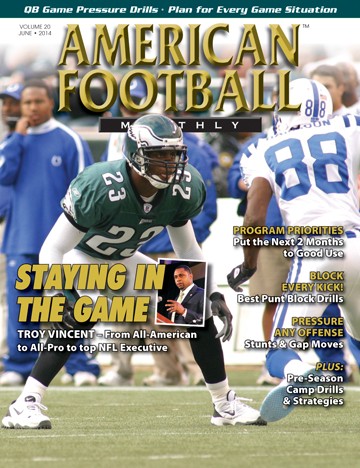Article CategoriesAFM Magazine
|
Summer Priorities – What should be your priorities heading into the summer months?by: JohnAllen W. SnyderOffensive Coordinator • Pequea Valley High School (PA) © More from this issue The summer months bring about a number of challenges for every football coach. Staying in contact with players and parents without school every day can be difficult. Similarly, coordinating staff meetings and giving players and coaches the needed time off before the grind of a new season begins can also be taxing. What should be your priorities heading into summer? What are the most effective ways to communicate with players and coaches? How important are strength and conditioning programs and 7-on-7 competitions? What about community service and fundraising? To get answers to these questions, AFM turned to a panel of six successful head coaches. They included Josh Niblett, Hoover High School (AL); Norris Vaughan, Mountain Pointe High School (AZ); Gabe Infante, St. Joseph’s Prep (PA); John Rodenberg, Archbishop Mo....The full article can only be seen by subscribers.
|
|
|||||||
| HOME |
MAGAZINE |
SUBSCRIBE | ONLINE COLUMNISTS | COACHING VIDEOS |
Copyright 2025, AmericanFootballMonthly.com
All Rights Reserved





